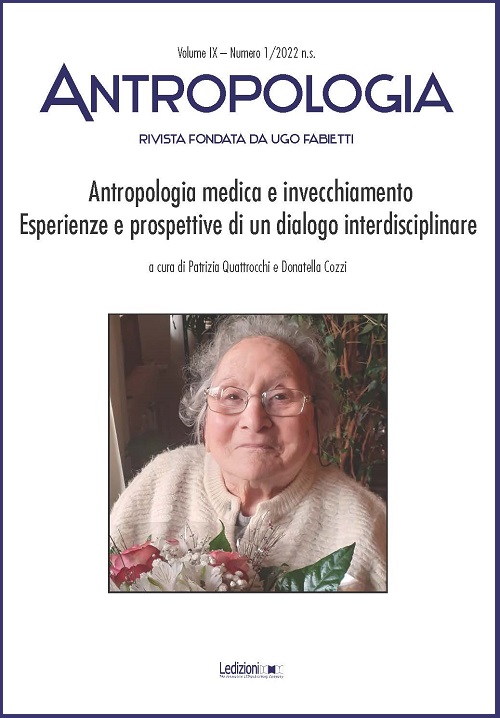Alzheimer disease in three-dimensional perspective: social alteration, clinical pathology, and intersubjective malaise
DOI:
https://doi.org/10.14672/ada2022194353-73Keywords:
alzheimer's disease, aging demographics, individual identity, autobiographical memory, multisited ethnographyAbstract
This paper addresses the analysis of cultural, political, and biomedical representations of Alzheimer's disease in contemporary society. To this end, the results of a multisited ethnography involving patients, family members, and hospital staff in five geriatric clinics in Paris and banlieue will be presented. With reference to the classical concepts of sickness, illness, and disease, revised and updated in the light of recent developments in medical anthropology, the aim is to analyze the narratives of illness, bringing to light the explanatory models and cultural representations that escape the limits of diagnostic definition alone. Conceived in terms of a pathology of memory and equated with loss of self, this notion comes from a broader social context and cultural model, in which memory is placed as a symbolic foundation of the processes of construction of individual and collective identities.
Downloads
Published
Issue
Section
License

This work is licensed under a Creative Commons Attribution 4.0 International License.
Authors maintain the copyright of their original work and grant the Journal the right to first publication, licensed after 36 months under a Creative Commons Licence – Attribution, which allows others to share the work by indicating the authorship and first publication in this journal.
Authors may agree to other non-exclusive licence agreements for the distribution of versions of their published work (for example in institutional archives or monographs) under the condition that they indicate that their work was first published in this journal.



